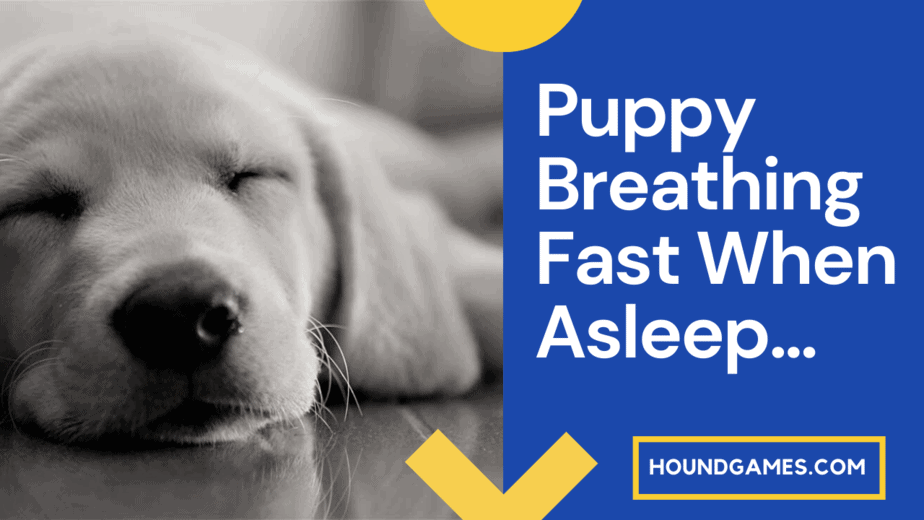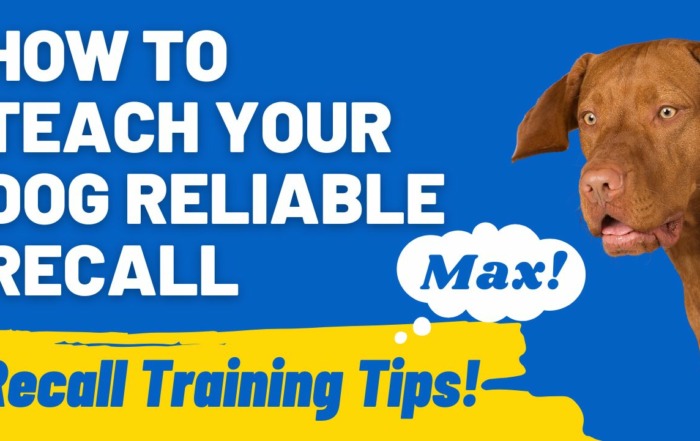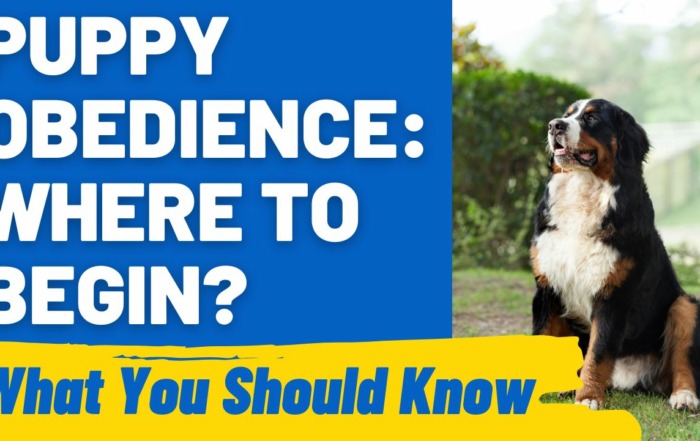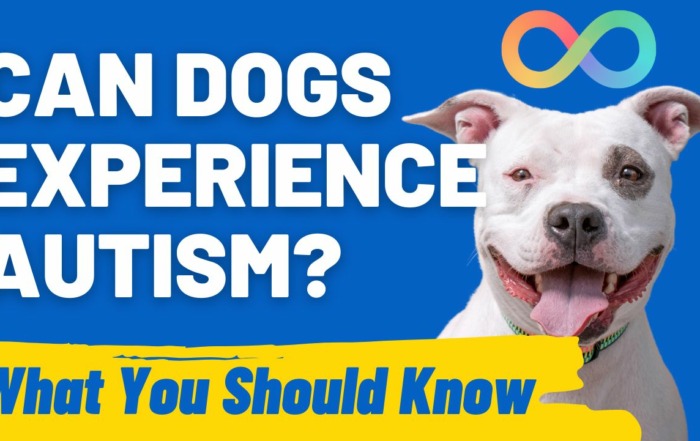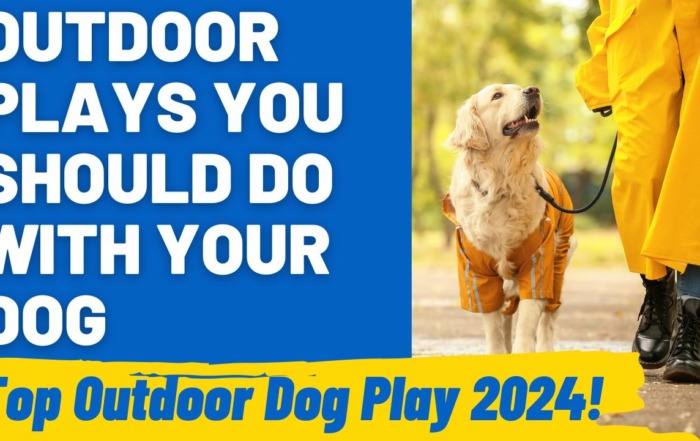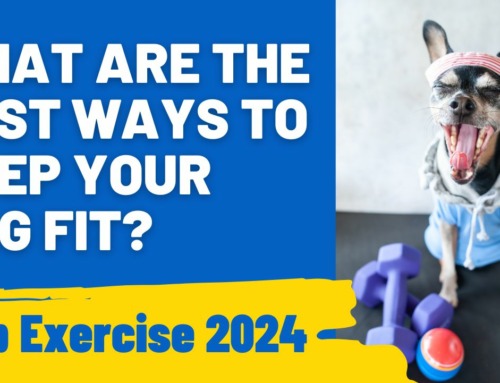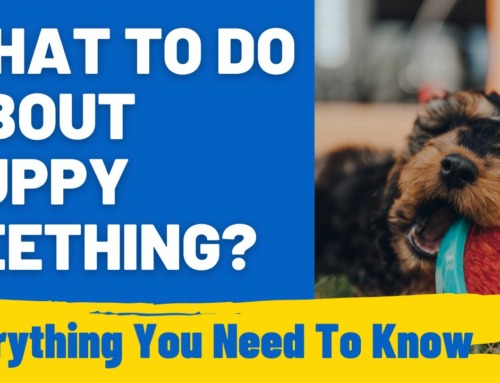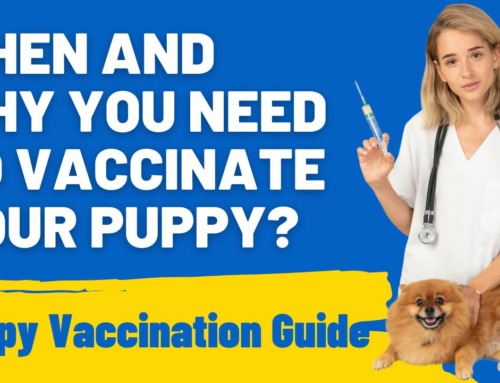It’s common for puppy owners to be concerned when their puppy starts breathing fast, erratically, or in a weird manner, especially when they’re asleep. In this post, we’ll answer your concerns about rapid puppy breathing, if you should be concerned, and what to do about it.
Why Is My Puppy Breathing Fast When Sleeping?
Puppies breathe fast when sleeping due to the REM sleep cycle. In this cycle, dreams arise and can physically affect the puppy through rapid breathing, body twitching, and rapid eye movement.
Rapid breathing during sleep isn’t something that warrants a visit to an emergency center. It’s just something puppies do when they fall asleep and can be contributed to small lungs and weaker diaphragms.
Are you interested in reading this: Puppy Sleeping With You: What You Need to Know

Does Stress Affect My Puppy Breathing Fast When Asleep?
Puppies can have raised stress levels when becoming accustomed to their new home. They no longer have their mother or littermates, and this separation can cause anxiety.
Heightened stress and anxiety can contribute to your puppy’s breathing rate, however you have nothing to worry about from a medical standpoint.
Still, it’s important to give them lots of attention and love to ensure a smooth transition. It’s also vital that you begin socialization as soon as possible, which can help offset anxiety through building confidence.
It’s also important that if you are training your pup, or taking them for walks, that sessions are kept brief. They don’t have the stamina yet, and if you overwork them, this can also contribute to fast breathing, when sleeping or otherwise.
You might also want to read When do puppies get easier?
You might like to read this on the subject of puppy exercise: Puppy Exercise Guide for 2023: (Safe methods and going outside)
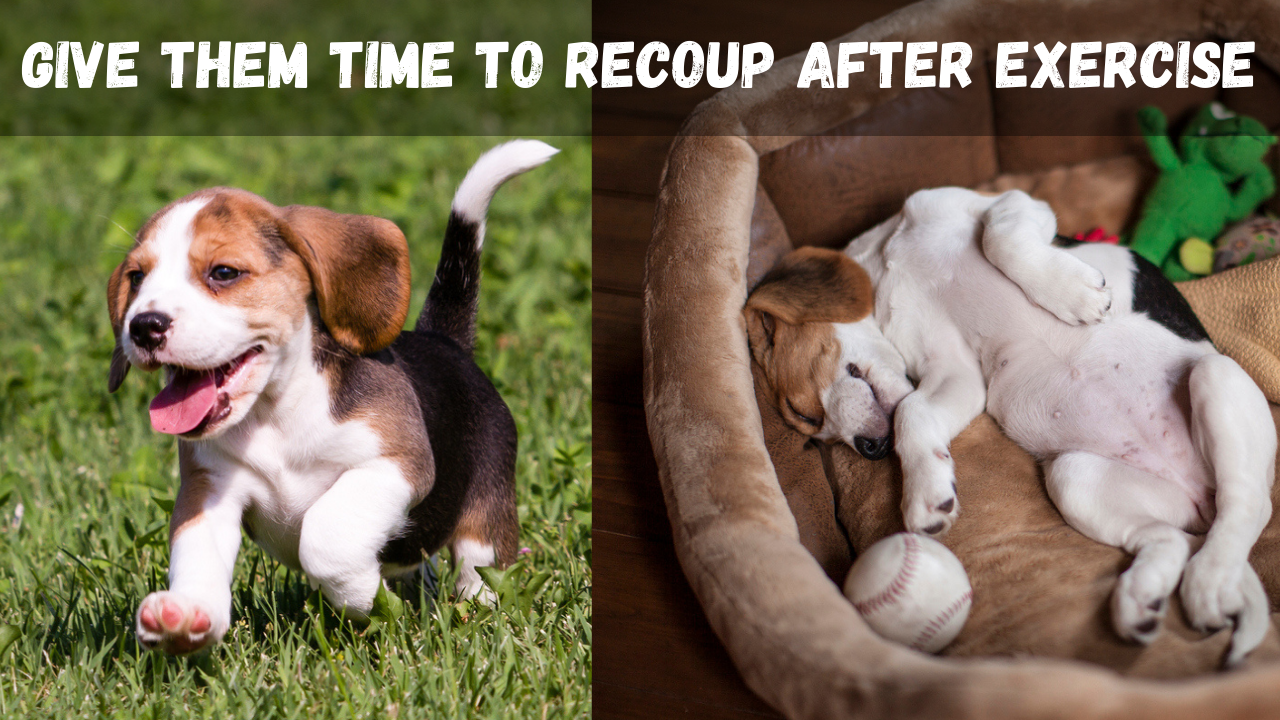
Rapid Breathing vs Panting
There may be times when your puppy’s rapid breathing progresses into panting. But this doesn’t necessarily mean your dog is experiencing any issues. You should apply basic logic to determine if your dog is in trouble or not.
Panting and rapid breathing may occur after playtime, training, or walks. It can be a sign of your dog trying to cool off, so be sure to offer plenty of water.
Although rapid breathing in puppies isn’t something to be concerned about, if you believe they look unwell, or you are unsure about their health, then always take your puppy to the vet.
This is especially true if they experience other symptoms such as a lack of appetite, signs of lethargy, and a general lack of interest.
Are you interested in reading our post, Puppy is Crying at Night: Why and what to do
Is Rapid Breathing Linked To Medical Conditions?
Rapid breathing itself may not be a cause for alarm, but it can be a symptom of many medical conditions. These conditions vary in severity and are usually accompanied by other symptoms.
Rapid breathing is also known as tachypnea or polypnea, and it differs from dyspnea or breath shortness.
Tachypnea can be linked to some lung-related diseases. Some of them are mild, i.e., asthma or kennel cough. Others are more severe, i.e., bleeding into the lungs or pulmonary edema.
These lung-related health issues are often accompanied by chronic coughing. In some serious situations, coughing may be a sign of various heart diseases.
Rapid breathing may be indicative of other issues beyond your puppy’s heart and lungs. For example, low counts of red blood cells or anemia, tumors, and low oxygen levels in the blood can have rapid breathing as a symptom.
If you do notice your puppy breathing rapidly in situations that don’t involve sleep, trying to stay cool, or coming down from exercise, you should schedule a visit with your vet immediately.
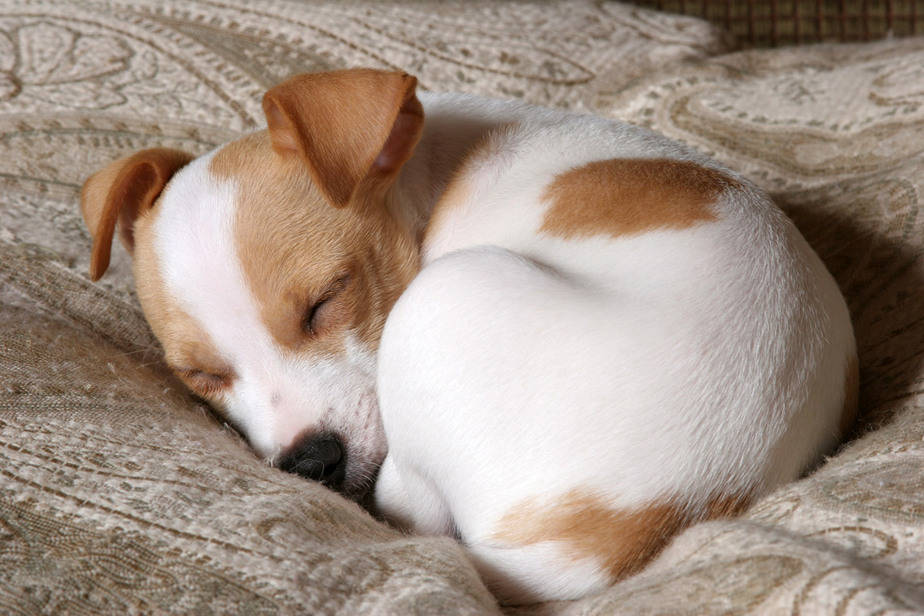
The Root Of Rapid Breathing
A puppy’s respiratory rate and heart rate will be faster than an older dog’s, especially while asleep.
As your puppy gets older, especially if it’s a larger dog breed, rapid breathing when sleeping will diminish. Smaller dogs may experience fast breathing rates throughout their lives, as well as brachycephalic dogs, which are they’re prone to panting more than any other dog breed due to their short nose.
Some cases of rapid breathing may indicate a cardiovascular problem such as cardiomyopathy or congestive heart failure. These diseases are often followed by symptoms like lethargy or fatigue when awake.
A puppy struggling to breathe may put itself in a strange position while panting. If the head and neck are stretched out, or his elbows are spread apart, they may be trying to open their airway to get more oxygen.
Generally speaking, if your puppy breathes fast because of a medical condition, it will show numerous other symptoms that can indicate which condition he’s suffering from.
Again, if you’re at all concerned, then a trip the vet is a must!
If your puppy ever shakes, then you might want to read our post on it here, or perhaps your puppy has weak back legs, in which case you can read that post here.
Here’s What You Can Do If You Have A Puppy Breathing Fast While Sleeping
Now that you are aware of what causes rapid breathing, you should know when to raise the red flag.
If your puppy appears healthy overall, they might just be a vivid dreamer. You can also test your dog to see if they’re breathing rapidly by counting the number of breaths per minute.
Most dogs breathe between 18 to 34 times per minute. As soon as your puppy begins breathing fast next time they fall asleep, you can count their breaths per minute.
You can either count for a full minute or count for 30 seconds and multiply it by two, or count for 15 seconds and multiply it by four.
Taking your dog’s temperature or measuring their pulse are also ways of finding out if your puppy is going through respiratory problems. If the number of breaths exceeds 34 by a significant amount, and your puppy has other symptoms, it may be a good idea to call your vet.
Your vet may perform tests to determine whether the puppy has health problems, fluid in the lungs, or any other conditions.
In most cases, though, if your puppy is eating and drinking and has energy when awake, then it’s likely just puppy dreams.
A new puppy can bring about many challenges and questions, as are covered in our post Exhausting Puppy.
What You Should Be Aware Of
Be aware that the temperature in your home may be too high. Dogs don’t have sweat glands, so they “sweat” through their mouths and the pads on their feet by panting or rapid breathing.
When a dog’s temperature rises 3 to 4 degrees above their normal body temperature of 100 to 102.5° F, they can experience heat stroke and start breathing too fast.
You should ensure that no matter where your puppy sleeps, it should be a cooled-down area to prevent breathing difficulties.
Conclusion
Next time you’re worried about your puppy breathing fast when asleep, remember that it’s likely normal and nothing to be concerned about.
It’s important to keep your cool and watch your dog. If your pup doesn’t show any other symptoms aside from the rapid breathing, everything is likely ok.
However, it takes time to develop some medical conditions, so always be on the lookout and don’t let your guard down.
Are you interested in reading this post: Why Does My Dog Bark At Night? (Answered)
Recall Training Secrets: How to Teach Your Dog Reliable Recall
Teaching a dog recall is not just a basic obedience skill; it's a vital aspect of ensuring the safety and freedom of your beloved pet. Picture this: your dog is playfully chasing after a squirrel [...]
The Joy of Petting: How to Approach Dogs the Right Way
"Can I pet that dog?" is often the first thought that pops into our minds when we see a furry friend wagging its tail. The joy of petting a dog is unmatched, offering both the [...]
Puppy Obedience: Where to Begin? An Introductory Guide
Puppy obedience is more than just teaching commands. It's about nurturing a relationship based on mutual respect and understanding. It lays the foundation for a well-behaved adult dog and ensures a harmonious life together. In [...]
Understanding Canine Autism: Do Dogs Experience It?
Have you ever wondered, can dogs have autism? Autism, a complex condition often characterized by social and communication difficulties, is widely recognized in humans. But when it comes to our canine companions, the idea of [...]
How to Integrate Play and Exercise for a Healthier Dog?
Ensuring a healthy and fulfilling life for our dogs involves more than just regular feedings and routine check-ups. Integrating play and exercise into their daily lives plays a crucial role in maintaining their physical and [...]
Outdoor Adventures: How to Make the Most of Outdoor Play with Your Dog?
Engaging in outdoor play with your dog is more than just a fun way to pass the time; it's an essential part of their health and happiness. From frolicking in the local park to embarking [...]

